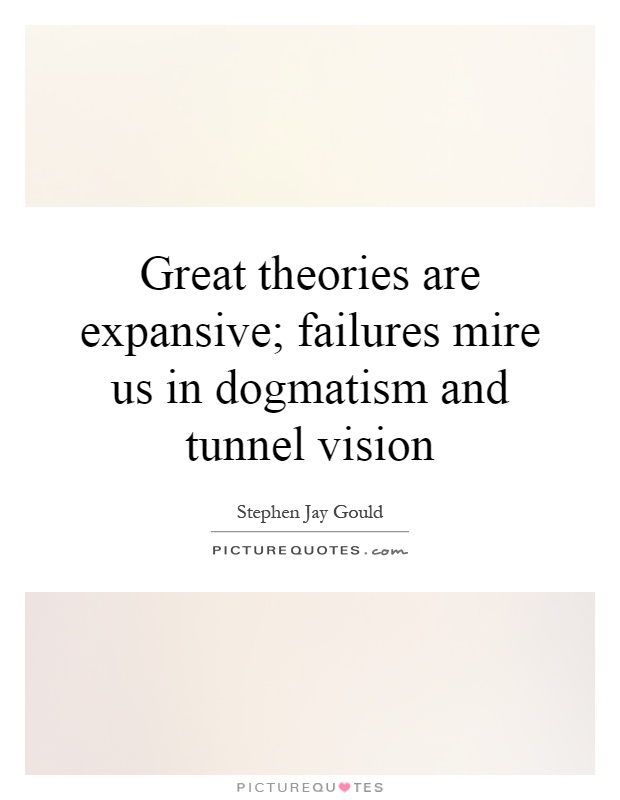Great theories are expansive; failures mire us in dogmatism and tunnel vision

Great theories are expansive; failures mire us in dogmatism and tunnel vision
Stephen Jay Gould was a renowned paleontologist, evolutionary biologist, and science historian who was known for his groundbreaking work in the field of evolutionary theory. Gould was a firm believer in the importance of embracing new ideas and theories, and he often spoke out against dogmatism and tunnel vision in the scientific community.One of Gould's most famous theories was his concept of punctuated equilibrium, which challenged the traditional view of evolution as a slow and gradual process. Instead, Gould argued that evolution occurs in rapid bursts of change followed by long periods of stability. This theory was expansive in its scope, offering a new perspective on the mechanisms of evolution and challenging scientists to think differently about the natural world.
Gould's work was a prime example of how great theories can push the boundaries of our understanding and open up new avenues of research. By embracing new ideas and being willing to challenge established beliefs, Gould was able to make significant contributions to the field of evolutionary biology and inspire others to think creatively and critically about the natural world.
On the other hand, Gould was also critical of the dangers of dogmatism and tunnel vision in science. He believed that clinging to outdated theories and refusing to consider new evidence could hinder scientific progress and lead to a narrow-minded approach to research. Gould argued that scientists should always be open to new ideas and willing to revise their theories in light of new evidence, rather than becoming entrenched in their beliefs.












 Friendship Quotes
Friendship Quotes Love Quotes
Love Quotes Life Quotes
Life Quotes Funny Quotes
Funny Quotes Motivational Quotes
Motivational Quotes Inspirational Quotes
Inspirational Quotes